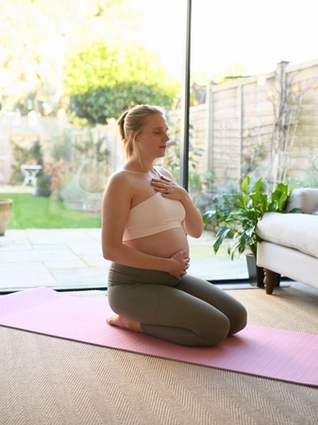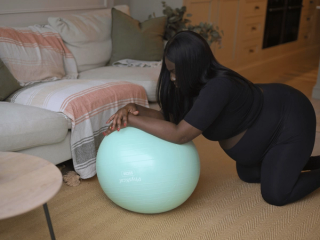
- Home
- Advice Hub
- Pregnancy
- Labour & Birth
- Hypnosis For Labour And Birth
Hypnobirthing: Hypnosis for Labour and Birth
Learn how hypnobirthing can help you to feel calm and confident through labour by combining deep relaxation, breathing techniques, visualisation and self-hypnosis.
What is hypnobirthing?
Hypnosis is a state of deep mental and physical relaxation. Practitioners believe it makes the mind more open to suggestions that can help change our beliefs and behaviours. Hypnosis designed to prepare women for labour – also known as HypnoBirthing - aims to give the pregnant woman confidence that birth is safe, gentle and even comfortable.
This type of hypnosis doesn’t involve a trance; instead, women use deep breathing, visualisation, and affirmations to stay relaxed and positive during labour.
How does hypnobirthing work?
Hypnosis advocates believe that when a woman feels fear during childbirth, her body releases stress hormones that trigger the body's "fight or flight" response. This makes her muscles tighten up and can interfere with the birthing process. By training the subconscious mind to expect a safe, gentle birth, they say women can avoid going into the fight-or-flight state, allowing for a smoother labour and birth.
Supporters say some women respond to these hypnotic suggestions so well that they release natural "feel-good" hormones, such as endorphins and serotonin, while giving birth. This, they say, relaxes the mother's muscles and nervous system to the point that she feels less pain – or even no pain at all.
The idea that hypnosis might ease labour by helping women avoid the fight-or-flight state hasn't been verified in studies. However, experts agree that this makes sense based on our understanding of how the body works.
Will hypnosis labour work for me?
Therapies like hypnosis are difficult to evaluate in a scientific study. However, several initial studies have reported that mothers who used hypnosis during labour needed less pain relief medication and rated their pain as less severe.
What are the disadvantages of hypnobirthing?
Learning self-hypnosis takes time and usually money. Usually, birthing hypnosis involves attending a series of classes, then practicing the techniques at home, or buying a book or using a playlist to teach yourself.
Many women who try self-hypnosis for childbirth hope to avoid pain medications or medical interventions, so it's also possible you'll feel disappointed if you end up asking for further pain relief or needing an intervention.
Is there anyone who can’t use hypnosis during labour?
Virtually anyone can use self-hypnosis; the only real requirement is being willing to listen to the suggestions and practice the techniques you learn.





